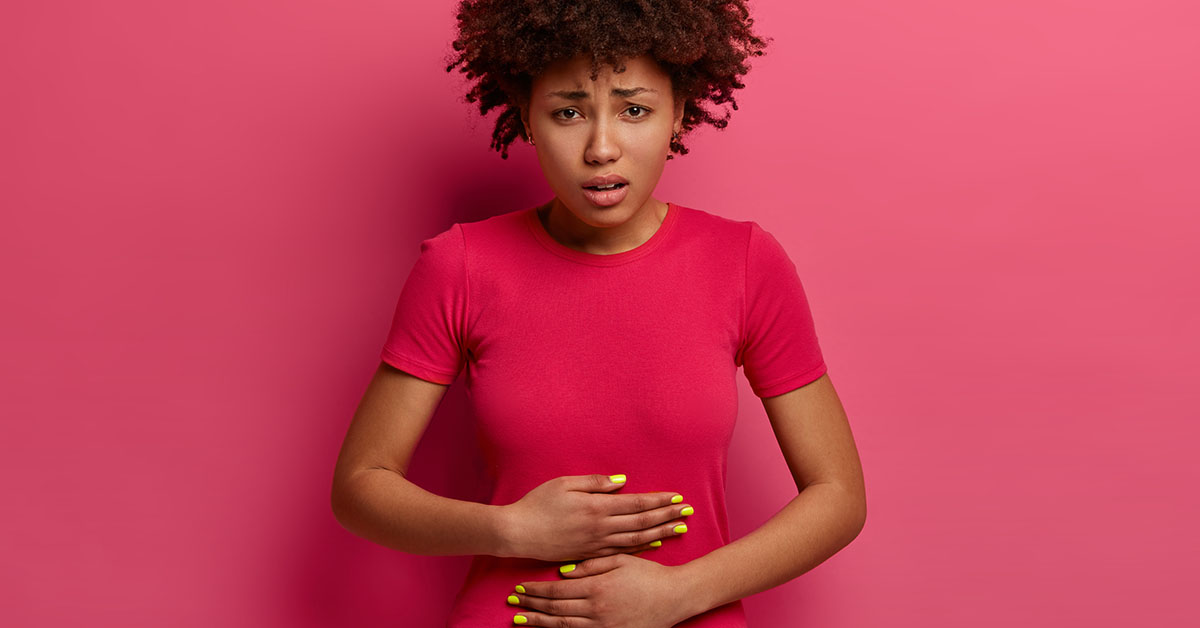July is Uterine Fibroid Awareness Month. Uterine fibroids are common, but not all women who have them know they’re there. However, some women experience pain or discomfort due to fibroids. Usually, fibroids are harmless, but if any of the signs of uterine fibroids are interfering with your daily life, you should talk to your OB/GYN.
About Uterine Fibroids
Uterine fibroids are benign (noncancerous) growths or tumors that develop on or within the walls of the uterus. Fibroids can range in size from less than an inch than to over six inches in diameter. According to the Office on Women’s Health, it’s estimated that fibroids will affect 20-80% of women by the time they reach age 50.
Signs of Uterine Fibroids
1. Painful Periods
One of the hallmark signs of uterine fibroids is having painful periods. Many women experience some cramping, pain, or discomfort during their periods. But if you find yourself unable to get daily tasks done due to period pain, consult your doctor.
2. Heavy Bleeding During Periods
Not only do fibroids sometimes cause painful periods, but they may also cause heavy menstrual bleeding.
3. Bleeding Between Periods
Some women with uterine fibroids experience bleeding between menstrual periods. This bleeding could be light (spotting), or it might be heavier.
4. Pain During Intercourse
If you are having pain during sex, you should always talk to your OB/GYN. Not only is it one of the signs of uterine fibroids, but it could be a symptom of another condition even if you don’t have fibroids.
5. Pressure or Fullness in the Pelvis
Fibroids may create a feeling of fullness or pressure in the lower abdomen or pelvis.
6. Lower Back Pain
The pain caused by fibroids may radiate into the lower back.
7. Anemia
If heavy bleeding is one of the signs of uterine fibroids you experience, then anemia might also become an issue.
8. Frequent Urination
Frequent urination on its own is not a sign of uterine fibroids. It can be caused by other conditions like urinary tract infections (UTIs) or overactive bladder. However, if it is present with some of the other symptoms on this list, it could be related to fibroids.
9. Infertility or Recurrent Pregnancy Loss
Fibroids don’t usually have an effect on fertility, but in rare cases, they can make it difficult to get pregnant or maintain a pregnancy. This is because some fibroids may block the fallopian tubes or make it difficult for an embryo to implant in the lining of the uterine wall.
Treatment Options
The best treatment for uterine fibroids depends on the size and location of the fibroids. Other factors that influence treatment include the severity of a woman’s symptoms and whether or not she wants to try to have children later.
- Drug therapy: Hormonal medications such as oral birth control or an IUD can help control the symptoms of uterine fibroids. A type of medication called a gonadotropin-releasing hormone agonist can also help with symptoms and shrink fibroids. However, after the medication is discontinued, the fibroids will return to their previous sizes and symptoms will return.
- Uterine fibroid embolization (UFE): This is a minimally invasive procedure in which the vessels supplying blood to the fibroids are blocked. This causes the fibroids to shrink and reduces symptoms.
- Surgery: In cases where the symptoms and signs of uterine fibroids are not well managed with drug therapy, surgery may be recommended.
- A procedure called a myomectomy in which the fibroids are removed while the uterus is left in place can be done in some cases. However, new fibroids may grow after the procedure and multiple surgeries may be required.
- A hysterectomy in which the uterus is removed is the only way to completely remove fibroids and prevent new growth. However, this is only recommended in cases where the symptoms are severe or the woman does not want to maintain fertility.
Contact Green Valley OB/GYN
If you have any of the above symptoms or signs of uterine fibroids, the physicians and staff at Green Valley OB/GYN are here to help. Call us at (336) 378-1110 to schedule an appointment today.
